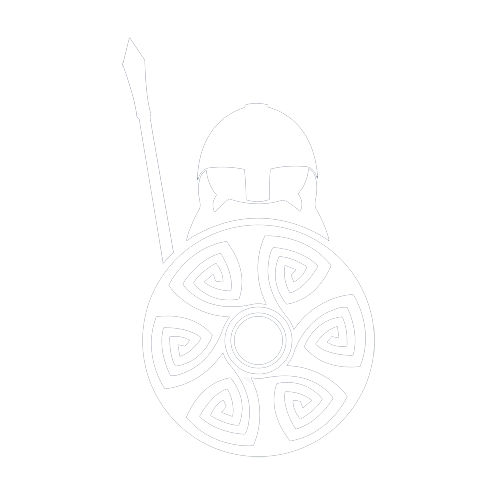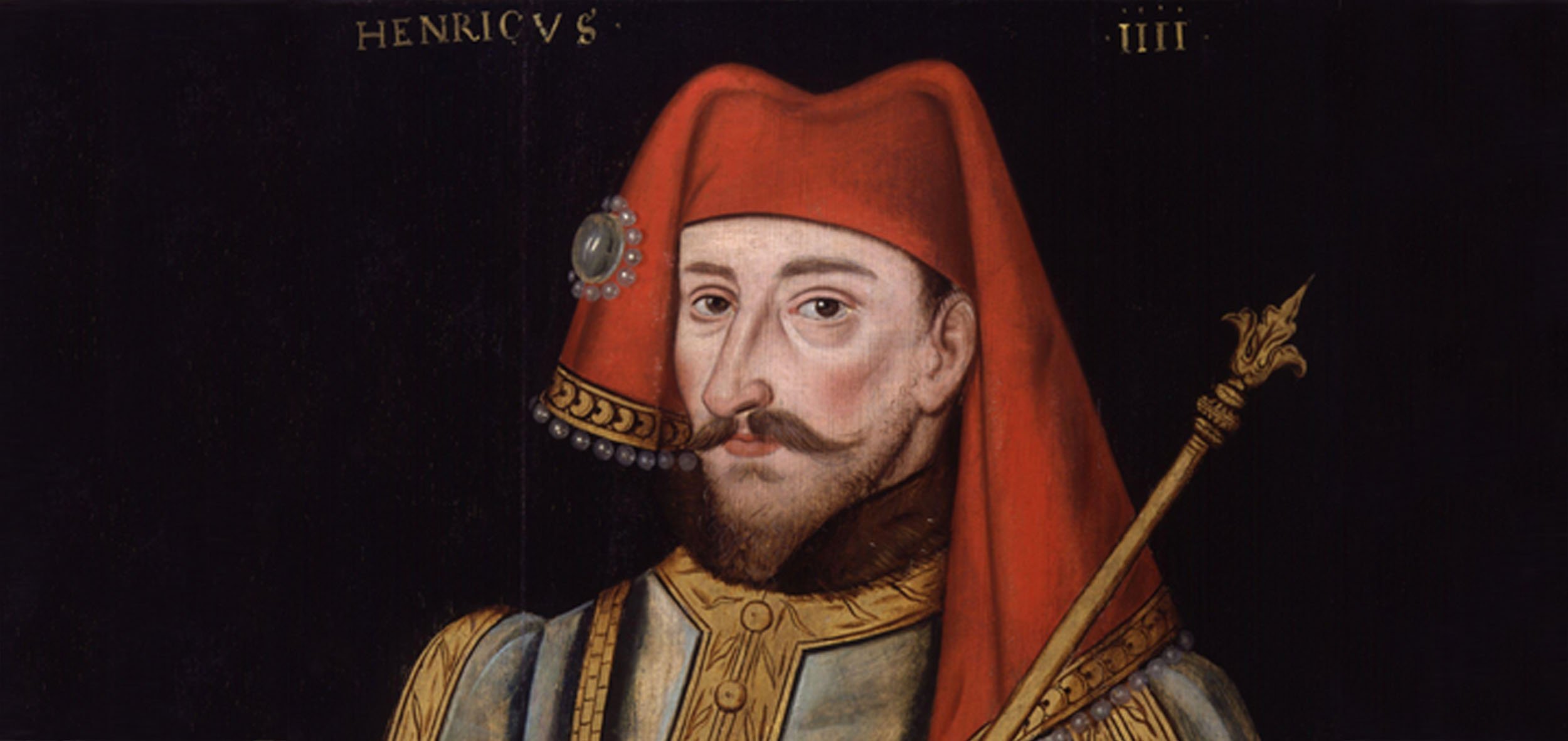King Henry IV Bolingbroke
King Henry IV was the son of John of Gaunt and Blanche of Lancaster, and the first Lancastrian king. He began his reign usurping the unpopular king, Richard II, but spent the next 13 years defending his crown from rebellions and assassination attempts. Incessant opposition from the powerful Percy family and the ambitious Prince of Wales, Owain Glyndwr, wore down King Henry IV and the treasury. Talks of abdication from the Archbishop of Canterbury, and growing support for Henry IV’s son, Henry V, drove the king to exhaustion and eventually his death.
| Born | 15 April 1367, Bolingbroke Castle, Lincolnshire |
| Parents | John of Gaunt and Blanche of Lancaster |
| Married | Mary de Bohun and Joan of Navarre |
| Children | 7 inc Henry V |
| Died | 20 March 1413, Westminster, buried at Canterbury Cathedral (45) |
| Reign | 1399 - 1413 (13) |
| Crowned | 13 October 1399, Westminster Abbey (32) |
| Predecessor | Richard II (cousin) |
| Successor | Henry V (son) |
| House | Lancaster |
Life Events of King Henry IV
1367
On 15 April, Henry IV is born to John of Gaunt and Blanche of Lancaster.
1377
Henry IV is made a Knight of the Garter.
1380
Henry IV marries Mary de Bohun, daughter of the Earl of Hereford.
1399
Henry IV returns from exile in France, and reclaims his land and estates seized by Richard II. Henry IV makes his claim to the throne of England, and is accepted by Parliament, despite usurping the throne from the young heir apparent, Edmund Earl of March.
1400
Richard II dies of starvation, possibly on the orders of King Henry IV, while imprisoned at Pontefract castle.
1401
The self-declared Prince of Wales, Owain Glyndwr, leads a national rebellion to Henry IV’s English rule. His ambitions were far and wide, and would cause Henry IV many problems.
1402
The Scots invade the northern borders of England, being led by Archibald, Earl Douglas, looting all the way to Newcastle. On their return to Scotland, Henry Percy, Earl of Northumberland and his son Henry ‘Hotspur’ block their route back. The Battle of Humbleton Hill ensues, and the Scots are defeated.
1403
Henry Percy, Earl of Northumberland, feels he has not been properly rewarded for helping Henry IV to oust Richard II. So, he allies himself with Owain Glyndwr and the Earl of Worcester. They are defeated by Henry IV at the Battle of Shrewsbury on 21 July.
1403
Henry Percy’s son, Henry ‘Hotspur’ is killed in the battle, Henry Percy is spared. Henry of Monmouth (future Henry V) is wounded by an arrow in his face, but survives.
1404
Owain Glyndwr continues to rebel against King Henry IV, and forms an alliance with France.
1405
Henry Percy launches his second rebellion, supported by Owain Glyndwr and the French.
1406
James I of Scotland is captured at the age of 11, while sailing to France. He is imprisoned by Henry IV for the rest of his reign. King Henry IV catches a skin illness similar to leprosy.
1408
Henry Percy launches his third rebellion against Henry IV, but is killed at the Battle of Bramham Moor. Henry IV has Percy’s head placed on a spike on London Bridge.
1409
Welsh resistance begins to fade. Harlech castle falls to the English.
1413
King Henry IV dies at Westminster, exhausted from a reign of rebellions and battles.
Interesting Facts About King Henry IV
Ascension to the Throne
Henry IV became king of England on September 30, 1399, following the deposition of his cousin, King Richard II. His reign marked the beginning of the Lancastrian dynasty. He was crowned on 13 October 1399.Bolingbroke
Before becoming king, Henry IV was known as Henry Bolingbroke. He acquired this name from his birthplace, Bolingbroke Castle in Lincolnshire.Henry of Lancaster
In addition to being known as Henry Bolingbroke, Henry IV is sometimes referred to as ‘Henry of Lancaster’ due to his strong association with the Lancaster branch of the Plantagenet dynasty.Claim to the Throne
Henry's claim to the throne was based on his lineage. He was the son of John of Gaunt, Duke of Lancaster, who was the third son of King Edward III. This made Henry a grandson of Edward III and a descendant of the Plantagenet dynasty.Rebellion against Richard II
Henry Bolingbroke initially rebelled against his cousin, King Richard II, due to disagreements over governance and Richard's perceived misrule. This rebellion ultimately led to Richard's deposition and Henry's ascent to the throne.Conflict with the Percy Family
During Henry IV's reign, he faced several challenges from powerful nobles, including the Percy family. The most notable clash was the Battle of Shrewsbury in 1403, where Henry defeated the rebellion led by Henry ‘Hotspur’ Percy.
Battles Fought By King Henry IV
Battle of Shrewsbury
On 21 July 1403, King Henry IV led a 14,000 strong royalist army against the rebel, Henry ‘Hotspur’ Percy of Northumberland, and his 10,000 men. Longbow vs longbow, King Henry IV was victorious. Hotspur was killed in the battle, and his head was placed on a spike on York’s north gate, as a warning.
FAQs About the King
How did Henry IV become king?
Henry IV became king by deposing his cousin, King Richard II, in 1399. He claimed the throne based on his lineage and the support of nobles who were dissatisfied with Richard's rule.What challenges did Henry IV face during his reign?
Henry IV faced numerous challenges, including rebellions by powerful nobles like the Percys, who were unhappy with his rule. He also faced ongoing conflicts in Wales and border disputes with Scotland.Did Henry IV have any military successes?
Yes, Henry IV achieved military successes, most notably in the Battle of Shrewsbury in 1403. He defeated a rebellion led by Henry ‘Hotspur’ Percy, which posed a significant threat to his rule.What was the state of Henry IV's health during his reign?
Henry IV suffered from various health issues throughout his reign, including a skin disease, which is believed to have been either leprosy or a similar ailment. His health problems affected his ability to govern effectively.Where is Henry IV buried?
Henry IV is buried in Canterbury Cathedral in Kent, England.What is Henry IV's legacy?
King Henry IV's reign marked a transition in English monarchy and set the stage for the Lancastrian dynasty. He faced significant challenges to his rule but managed to establish a relatively stable period of governance.
King Henry IV Coronation
Owain Glyndwr by A.C Michael




